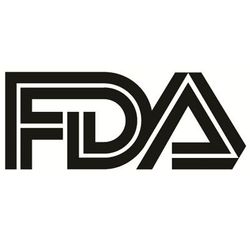Emerging Evidence to Guide Patient-Centric Treatment Selection for Heart Failure - Episode 11
Beta Blockers in Patients with Heart Failure with Preserved Ejection Fraction
Robert J. Mentz, MD, and Javed Butler, MD, MPH, MBA, comment on the use of beta blockers and other agents in patients with heart failure preserved ejection fraction (HFpEF).
James Januzzi, MD: We’ve heard about sacubitril-valsartan and heart failure with preserved EF [ejection fraction], but we’re going to talk more about that because there are new data that we should discuss. We’ve heard about SGLT2 inhibitors on the back of the EMPEROR-Preserved and DELIVER trials. They’re essentially a class 1 indication, and anyone with HFpEF [heartfailure preservedejection fraction] should be getting an SGLT2 inhibitor. We’ve heard about MRAs [aldosterone receptor antagonists], and we’re going to talk about how we individualize care. Rob, it’s note worthy that you didn’t mention beta-blockers. Where in the world do they fit in?
Robert J. Mentz, MD: This is an important piece to underscore, Jim. There isn’t that level of recommendation for beta-blockers in preserved heart failure with ejection fraction because it’s not shown to improve those hard clinical outcomes in trials. In fact, we have some data that coming off of beta-blockers can help patients feel and function better.
James Januzzi, MD: Feel better. It’s not just an absence of evidence; it’s evidence of absence. It’s not that they haven’t been studied. In fact, in certain patients with HFpEF, beta-blockers may worsen things. Is that fair to say?
Robert J. Mentz, MD: That’s right.
James Januzzi, MD: It seems that this is where we have an opportunity to individualize. Where do you use beta-blockers?
Robert J. Mentz, MD: There are cases where if they have underlying coronary disease, I pull in data from the CAD [coronary artery disease] population. They might have underlying angina. Those are some of the effective medications. Even looking at things like arrhythmia burden. If atrial fibrillation is driving symptoms, that can help manage them to some degree.
James Januzzi, MD: I tend to think of heart failure with mildly reduced ejection fraction similarly, with respect to the use of ARNI [angiotensin receptor/neprilysin inhibitor] and beta-blockers, because in this situation, you’ve got a mild reduction in EF with a mild to moderate activation of the deleterious pathways in this setting, like the sympathetic nervous system. My own style, even in the absence of evidence, is to use beta-blockers once the EF is abnormal. In patients with preserved EF, I’m much more conservative about using beta-blockers. Javed, what are your thoughts on this?
Javed Butler, MD, MPH, MBA: I completely agree with you. Yes, there are some data that exercise tolerance gets better if you were to stop beta-blocker. There was a pacemaker study as well that [showed] if you have rate-responsive pacemakers and patients with HFpEF, their exercise capacity improves as well. However, we also need to realize that beta-blockers aren’t contraindicated in patients with HFpEF. There’s no indication per se because it seems like they may not benefit and they may affect exercise capacity. As you’re both mentioning, if you have another indication, then don’t deny them.
James Januzzi, MD: That’s really helpful and very useful for viewers.
Transcript edited for clarity


